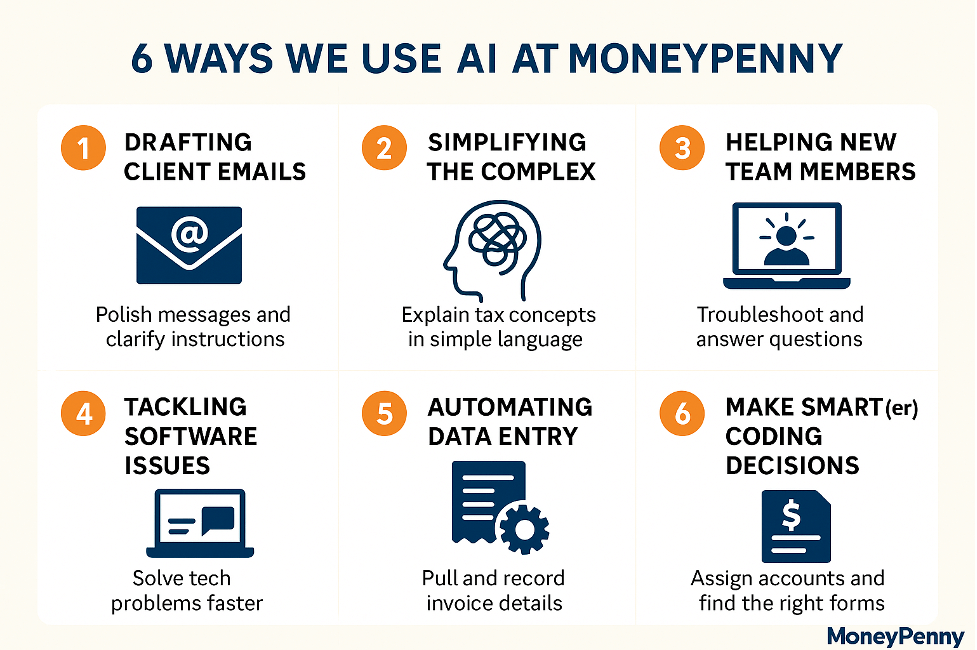Over the years we have worked on more accounting files than we can count. Working directly with business owners and working with Accounting offices. This all started because a large nationwide firm asked us, many more years ago than I care to admit, to develop a standard policy on allocations so they could systematize their write-up work across all their offices.
Part of our response to this request came out of the story of our own small business and our lack of understanding of the importance of watching our numbers. We had been devasted by an event that had destroyed the physical aspects of our retail location and struggling to get out from under the event we learned the value of watching and understanding our numbers. I imagine that the close watching of numbers is even more important than ever as businesses struggle with the economic effects of COVID-19. But a few other items have also given reason to monthly reconciliation and viable discussions that it should be done.
The most prominent one is the WireCard fraud story. EY not reconciling an account for three years while calling themselves the accounting firm of record was flooring. The shock to read that for want of a reconciliation this fraud had continued this long reminds me of Richard III on the fields of Bosworth. I have used this analogy before when it comes to not paying attention to numbers. Yet it is still one that explains what can occur by not performing one simple monthly task, reconciliation. True readers of Shakespeare may question the quote and its original meaning, although quoted differently over time, the intent remains. For a simple mistake, the king died, and the battle and war was lost. WireCard fraud is this decade Enron and proof of the need for auditing of accounts and ethical accounting practices as well as how paying attention to the little simple tasks is invaluable.
A smaller more local case also reminds of this need and extending it to a transparent accounting system overall. Recently we were asked to assist a litigation attorney in a possible case of fraud. The attorney got on a zoom call and showed us his excel file that went on for sheet after sheet where he was wanting up to 12 bank accounts reconciled over a three-year period. We had all the statements and were told that it was possible someone was skimming money from the accounts. The details of who and why are not necessary here. There was theft and it was glaring but only if you looked at the information in a comprehensive and logical manner would it jump out.
I am not an accountant but looking at the excel file and how he was jumping around and explaining what he had done to date I was not surprised that he became overwhelmed and ended up calling us. I suggested we rebuild year one in an accounting program that would give us a quick method to import, allocate, and reconcile. We used QuickBooks desktop and did just that. From the time of the zoom meeting to 16 working hours later we found 1.2 million in stolen funds done via skimming a bit off of multiple same-day ACH movements between accounts. We ended this job quite a bit faster than expected and the person committing the fraud admitted and the attorney sent a message to stop work the case was now closed.
The attorney is sending us quite a bit of forensic accounting work now. So even though the first project went quickly we ended up expanding over all the work we are performing the law firm.
The next week we received a call from a company that over the last few years occasionally calls us with questions on the use of QBO. We had originally assisted them in setting up their file on QBO from QB desktop. They were in need of clean financials and had two Line of Credit accounts that were showing negatives. A quick review showed that the accounts were not set up properly using the incorrect type of Credit Card and also none of the bank accounts had been reconciled for over two years. The owner admitted that he had just not thought it was important until the change in the economy meant they had to be more diligent on containing expenses and needing accurate financials for reporting to various agencies on loans. We completed that clean-up work in one shift.
With all the tools out there for the speed of data and the ease of rules-based allocations, non-reconciled books each month should be left in the history books and not part of the future of cloud accounting. Giving a value case proposition on monthly reconciliations and closings to business owners seems like a very doable conversation right now.





